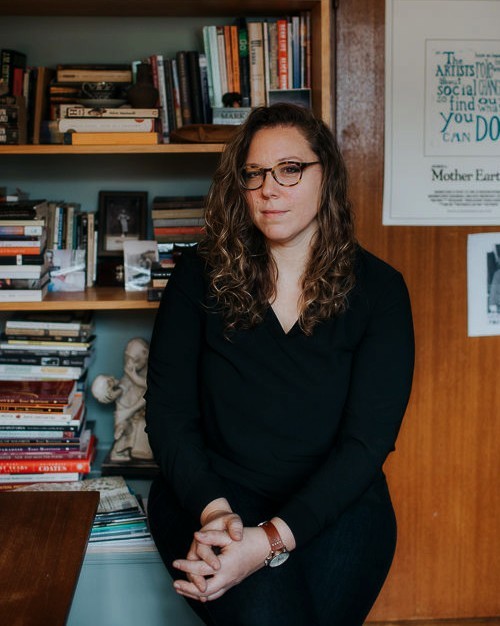Hiring trends show arts and humanities degrees are making a comeback
Posted: June 15, 2019Recent hiring trends show that labour needs in the workplace are changing, and there is a rising demand for workers with transferrable, interdisciplinary skills. Once pushed aside in favour of candidates with a technical or business focused education, arts and humanities graduates are now in demand across all sectors.
Carmel Mikol is proof of this changing need.

Since graduating with an English degree from Dalhousie University, she has worked as a Membership and Events Coordinator at the Atlantic Provinces Economic Council (APEC). She manages relationships with APEC’s member organizations and plans events. It may seem like a background in English wouldn’t be applicable in this role, but Carmel says it’s quite the opposite.
“If there is anything I’ve learned since graduating, it’s that the most valuable skills I have are the ones that I learned in my humanities classes. I’m not afraid of a question – if I don’t know how to do something, my training kicks in – I’ll do the research and find the answer. I’m unafraid of any challenge, and I’m always seeking solutions.”
As we move forward into a new age of innovation and technology, humanistic skills like creative thinking, writing, problem-solving, and active listening are becoming more valued than ever before. There is a rising demand for people who can take information and put it into a human context – these are essential skills that are developed through humanities studies.
However, there is still a common misconception that job opportunities are limited for humanities graduates. Carmel saw that she had options after a job shadowing experience at tech company SimplyCast. She was connected to this opportunity through the Halifax Partnership’s Experiential Learning Initiative. She spent an afternoon with social media copywriters and content developers: it was a validating experience. “It gave me confidence that the skills that I was developing in research, writing papers and editing could be translated not only into a job, but a tech-forward job.”
Everything has come full circle for Carmel, as she is now looking to hire co-op students at APEC. Experiential learning opportunities like this can help students in in various industries see how their skills can apply to a job. “When you’re in school as a full-time student, you’re so wrapped up in the projects you’re working on, the research you’re doing, and meeting deadlines for your courses. Sometimes getting out of school and going into the workplace helps take some of the mystery out – why am I doing this, how is this going to translate?”
Armed with the skills she developed during her English degree, Carmel feels prepared to face whatever challenges may come her way. “The point isn’t whether you are able to do what is popular now, but are you going to be able to do what’s popular next year. You need to be able to keep up with technology. I think that’s a skill that comes from a humanities degree – the ability to move and grow and change and learn.”
To learn more about the Partnership’s Experiential Learning Initiative, contact Julie Weir at [email protected].